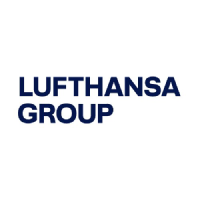Downshift Ahead?
Porsche's shares could hit a pothole if its new SUV doesn't
meet investors' high hopes
By VITO J. RACANELLI
Over the past five years, everything's been going Porsche's way. The
dollar was strong; the rich were getting richer and more numerous;
global economies, particularly the U.S., were humming along; and the
German sports-car maker enjoyed a benign competitive landscape. Even
last year's recession in the U.S. and the stumbling economy in
Germany
-- markets that account for two-thirds of Porsche's sales -- so far
haven't put a major dent in the stock. Though sales of its entry-
level
model, the Boxster, plunged an estimated 21% in the company's 2002
fiscal year, ended in July, Porsche probably will make up the sales
shortfall with industry-leading 20%-plus margins and buoyant sales of
the pricey 911, Porsche's icon model and reputed cure for male
menopause. Fiscal 2002 results haven't been released,
but Porsche has said they will "at least" equal those of fiscal 2001,
when it had ?4.4 billion in sales and ?270.5 million in net income.
Bulls also have been anticipating with glee the new Cayenne, slated
to
hit showrooms in December. It's Porsche's entry into the now-crowded
high-end sport-utility vehicle market, and visions of 25,000 sales in
the first year, representing roughly a 50% rise on Porsche's current
production, have ratcheted up the stock price. Indeed, even after
slipping from a March high of ?546, at the recent ?470, Porsche
shares
are still more than 100% above their post-Sept. 11 lows, triple the
Dow Jones European auto index's performance. Since mid-1997, they've
nearly quadrupled.
Porsche shares seem unassailable right now, but the wheel of fortune
just might be turning. Some investors fear that Porsche's sky-high
valuation and bubbly expectations won't withstand the
challenges just ahead. The factors behind Porsche's five-year bull
ride have all either reversed or slowed significantly. The dollar,
for
example, has fallen sharply against the euro this year and shows no
signs of recovering; a weak greenback is always a headwind for German
exporters. Meanwhile, the U.S. economy sputters along and Germany's
is
mired in a deep stasis. The stock-market bust is likely to rein in
even once free-spending rich folks. And, for the first time, Porsche
has entered a market, SUVs, where there are tough competitors, such as
BMW, Mercedes-Benz and Land Rover. The Stuttgart firm's shares could
drop 20% or more over the next year or so if the environment
continues
to deteriorate.
"The analysts are simply too positive on Porsche," asserts Nicolas
Mathys, a money manager at Zulauf Asset Management in Zug,
Switzerland. Brokerages are now comparing Porsche's price-to-earnings
ratios to more expensive but far less capital-intensive luxury
companies, such as Gucci, "and that's always the end of the story,"
he
notes. Similar evaluations were made for Ducati, the Italian maker of
expensive motorcycles, whose shares are now down to ?1.73 from a high
of ?3.20 in 2000, he points out.
Mathys isn't the only investor turned off by Porsche's nosebleed
valuations. Metzler Investment fund manager Markus Brueck points out
Porsche's ratio of enterprise value (equity plus net debt) to annual
sales is now about 150%. Porsche shares have always been expensive,
he
grants, but now that ratio is far above its historic 130%-140%
average.
The P/E is rich, too. Porsche, which sports average profit margins of
12%-13%, trades at about 16-17 times consensus earnings for the
fiscal
year ending July, 2003. BMW, with margins of 8%-9%, trades at 10
times
2003 estimates, while volume car makers get 4%-6% margins and P/Es of
9-10. The market is ascribing a value of ?140,000 to each car Porsche
produces, far more than BMW, another premium brand. Porsche does have
enviable margins, but BMW is arguably less risky, with a more diverse
product line, adds Helaba Trust analyst Fabian Kania. And with about
50%-55% of revenue derived from the U.S. and Germany, BMW has fewer
eggs in those two baskets.
The valuation isn't justified, avers Mathys, who is short Porsche
preferred. (That's the only stock that trades, and only in Frankfurt.
The common equity is entirely owned by the Porsche and Piech
families.
Plans for an American listing have been put on hold.) While some
Porsche bears value the stock around ?325, Mathys contends fair value
is even lower at ?255. Using a standard dividend discount model, the
Swiss fund manager estimates the current price implies roughly 18%
annual profits growth over the next 10 years -- a target few, if any,
companies can hit, says a skeptical Mathys.
Indeed, Porsche hasn't done so over the past 10 mostly terrific years.
Porsche now also is embarking on probably its riskiest move in a
decade, entering the crowded high-end SUV market. Expectations are
high for the Cayenne, perhaps too high. The assumption is that the
world's fastest SUV will be successful like BMW's X5 SUV, which sells
about 100,000 units a year. But the Cayenne, priced at
?60,000-?100,000, is almost 50% more expensive than a comparable X5.
The world's economy also is far different than when the X5 debuted in
1999-2000, Mathys notes. While Porsche's new Cayenne plant breaks
even
at just 5,000-6,000 units, anything less than 25,000 is apt to
disappoint investors. By comparison, Mercedes sold just 2,100 of the
souped-up AMG version of the ML500 in the first eight months of 2002.
That model is aimed at the same market as the Cayenne.
The 911 sold on emotion, Helaba's Kania points out, but with the
Cayenne, Porsche dealers will have to engage in the nitty-gritty of
comparing prices and quality to an alternative brand. Porsche also
risks diluting the famous brand name, Kania contends, especially if --
as speculated -- it is studying a fourth model, a four-seater. The
failed diversification efforts by another brand name German company,
men's apparelmaker Hugo Boss, also serves as a warning.
Boss shares soared on its move into women's wear and then sank 60%
>from highs when the company found the far different market tough
going. Because Porsche's 911 has held up following the U.S. 2001
recession -- up 10% in the States this year, for example -- its
mainstay model has an air of invincibility. A lot of Porsche bulls
assert the company is immune to the economic cycle because its
typical
customers are wealthy individuals. The stock- market boom was kind to
them, but surely the bust will hurt, too, especially if it continues.
It's happened before. Over the past decade, Porsche unit sales fell
twice before and sharply, after -- not coincidentally -- the 1991
U.S.
recession. They fell 28% in fiscal 1992 and another 37% the following
year. This year, the sagging Boxster, which sells for $45,000-
$50,000,
might just be the canary in the coal mine. Indeed, the home office
recently had to scold U.S. dealers who were offering un-Porsche-like
rebates on the Boxster.
Eberhard Weinberger, a fund manager at Jens Ehrhardt Kapital in
Munich, doesn't think Porsche stock is bulletproof: The explosion in
incomes occasioned by the 1996-2000 stock-market boom was a "doesn't
get any better than this" phenomena. He worries the pendulum will
swing the other way, even for rich folks. "It might take a little bit
of time to show," but Porsche clients are not immune to downturns, he
says. "In the long term, especially in a double-dip scenario for the
U.S., the more the economy disappoints, the more problems for
Porsche."
There is anecdotal but interesting evidence it's already happening in
some places. In Geneva, a banking city where unemployment among market
professionals has risen sharply, Porsche registrations were down 12%
in the first five months of 2002.
Moreover, a recent survey of high-net-worth individuals by Merrill
Lynch and Cap Gemini Ernst & Young, showed their global numbers grew
just 3% in 2001, down from 6% in 2000 and a whopping 18% in 1999.
Growth was flat in Europe and less than 2% in the U.S. And the way
2002 is shaping up, that decline should continue. (These folks are
defined as having a net worth of at least $1 million, excluding real
estate. Presumably, they're capable of buying or leasing a
$60,000-$180,000 Porsche every few years.)
For a while longer, Porsche shares may yet bask in the positive glow
of Cayenne news and of strong earnings, which are expected to be
reported soon. Porsche makes undeniably fine automobiles, but
expectations for the stock are running ahead of what it might deliver
next year. And a little bumpy news probably would set off an exodus
>from the shares by momentum investors, who have flocked to one of
Europe's few big winning stocks. Indeed, Porsche shares fell 4% last
week on renewed global economic worries. That might only be the start.
Quelle: www.barrons.com
Porsche's shares could hit a pothole if its new SUV doesn't
meet investors' high hopes
By VITO J. RACANELLI
Over the past five years, everything's been going Porsche's way. The
dollar was strong; the rich were getting richer and more numerous;
global economies, particularly the U.S., were humming along; and the
German sports-car maker enjoyed a benign competitive landscape. Even
last year's recession in the U.S. and the stumbling economy in
Germany
-- markets that account for two-thirds of Porsche's sales -- so far
haven't put a major dent in the stock. Though sales of its entry-
level
model, the Boxster, plunged an estimated 21% in the company's 2002
fiscal year, ended in July, Porsche probably will make up the sales
shortfall with industry-leading 20%-plus margins and buoyant sales of
the pricey 911, Porsche's icon model and reputed cure for male
menopause. Fiscal 2002 results haven't been released,
but Porsche has said they will "at least" equal those of fiscal 2001,
when it had ?4.4 billion in sales and ?270.5 million in net income.
Bulls also have been anticipating with glee the new Cayenne, slated
to
hit showrooms in December. It's Porsche's entry into the now-crowded
high-end sport-utility vehicle market, and visions of 25,000 sales in
the first year, representing roughly a 50% rise on Porsche's current
production, have ratcheted up the stock price. Indeed, even after
slipping from a March high of ?546, at the recent ?470, Porsche
shares
are still more than 100% above their post-Sept. 11 lows, triple the
Dow Jones European auto index's performance. Since mid-1997, they've
nearly quadrupled.
Porsche shares seem unassailable right now, but the wheel of fortune
just might be turning. Some investors fear that Porsche's sky-high
valuation and bubbly expectations won't withstand the
challenges just ahead. The factors behind Porsche's five-year bull
ride have all either reversed or slowed significantly. The dollar,
for
example, has fallen sharply against the euro this year and shows no
signs of recovering; a weak greenback is always a headwind for German
exporters. Meanwhile, the U.S. economy sputters along and Germany's
is
mired in a deep stasis. The stock-market bust is likely to rein in
even once free-spending rich folks. And, for the first time, Porsche
has entered a market, SUVs, where there are tough competitors, such as
BMW, Mercedes-Benz and Land Rover. The Stuttgart firm's shares could
drop 20% or more over the next year or so if the environment
continues
to deteriorate.
"The analysts are simply too positive on Porsche," asserts Nicolas
Mathys, a money manager at Zulauf Asset Management in Zug,
Switzerland. Brokerages are now comparing Porsche's price-to-earnings
ratios to more expensive but far less capital-intensive luxury
companies, such as Gucci, "and that's always the end of the story,"
he
notes. Similar evaluations were made for Ducati, the Italian maker of
expensive motorcycles, whose shares are now down to ?1.73 from a high
of ?3.20 in 2000, he points out.
Mathys isn't the only investor turned off by Porsche's nosebleed
valuations. Metzler Investment fund manager Markus Brueck points out
Porsche's ratio of enterprise value (equity plus net debt) to annual
sales is now about 150%. Porsche shares have always been expensive,
he
grants, but now that ratio is far above its historic 130%-140%
average.
The P/E is rich, too. Porsche, which sports average profit margins of
12%-13%, trades at about 16-17 times consensus earnings for the
fiscal
year ending July, 2003. BMW, with margins of 8%-9%, trades at 10
times
2003 estimates, while volume car makers get 4%-6% margins and P/Es of
9-10. The market is ascribing a value of ?140,000 to each car Porsche
produces, far more than BMW, another premium brand. Porsche does have
enviable margins, but BMW is arguably less risky, with a more diverse
product line, adds Helaba Trust analyst Fabian Kania. And with about
50%-55% of revenue derived from the U.S. and Germany, BMW has fewer
eggs in those two baskets.
The valuation isn't justified, avers Mathys, who is short Porsche
preferred. (That's the only stock that trades, and only in Frankfurt.
The common equity is entirely owned by the Porsche and Piech
families.
Plans for an American listing have been put on hold.) While some
Porsche bears value the stock around ?325, Mathys contends fair value
is even lower at ?255. Using a standard dividend discount model, the
Swiss fund manager estimates the current price implies roughly 18%
annual profits growth over the next 10 years -- a target few, if any,
companies can hit, says a skeptical Mathys.
Indeed, Porsche hasn't done so over the past 10 mostly terrific years.
Porsche now also is embarking on probably its riskiest move in a
decade, entering the crowded high-end SUV market. Expectations are
high for the Cayenne, perhaps too high. The assumption is that the
world's fastest SUV will be successful like BMW's X5 SUV, which sells
about 100,000 units a year. But the Cayenne, priced at
?60,000-?100,000, is almost 50% more expensive than a comparable X5.
The world's economy also is far different than when the X5 debuted in
1999-2000, Mathys notes. While Porsche's new Cayenne plant breaks
even
at just 5,000-6,000 units, anything less than 25,000 is apt to
disappoint investors. By comparison, Mercedes sold just 2,100 of the
souped-up AMG version of the ML500 in the first eight months of 2002.
That model is aimed at the same market as the Cayenne.
The 911 sold on emotion, Helaba's Kania points out, but with the
Cayenne, Porsche dealers will have to engage in the nitty-gritty of
comparing prices and quality to an alternative brand. Porsche also
risks diluting the famous brand name, Kania contends, especially if --
as speculated -- it is studying a fourth model, a four-seater. The
failed diversification efforts by another brand name German company,
men's apparelmaker Hugo Boss, also serves as a warning.
Boss shares soared on its move into women's wear and then sank 60%
>from highs when the company found the far different market tough
going. Because Porsche's 911 has held up following the U.S. 2001
recession -- up 10% in the States this year, for example -- its
mainstay model has an air of invincibility. A lot of Porsche bulls
assert the company is immune to the economic cycle because its
typical
customers are wealthy individuals. The stock- market boom was kind to
them, but surely the bust will hurt, too, especially if it continues.
It's happened before. Over the past decade, Porsche unit sales fell
twice before and sharply, after -- not coincidentally -- the 1991
U.S.
recession. They fell 28% in fiscal 1992 and another 37% the following
year. This year, the sagging Boxster, which sells for $45,000-
$50,000,
might just be the canary in the coal mine. Indeed, the home office
recently had to scold U.S. dealers who were offering un-Porsche-like
rebates on the Boxster.
Eberhard Weinberger, a fund manager at Jens Ehrhardt Kapital in
Munich, doesn't think Porsche stock is bulletproof: The explosion in
incomes occasioned by the 1996-2000 stock-market boom was a "doesn't
get any better than this" phenomena. He worries the pendulum will
swing the other way, even for rich folks. "It might take a little bit
of time to show," but Porsche clients are not immune to downturns, he
says. "In the long term, especially in a double-dip scenario for the
U.S., the more the economy disappoints, the more problems for
Porsche."
There is anecdotal but interesting evidence it's already happening in
some places. In Geneva, a banking city where unemployment among market
professionals has risen sharply, Porsche registrations were down 12%
in the first five months of 2002.
Moreover, a recent survey of high-net-worth individuals by Merrill
Lynch and Cap Gemini Ernst & Young, showed their global numbers grew
just 3% in 2001, down from 6% in 2000 and a whopping 18% in 1999.
Growth was flat in Europe and less than 2% in the U.S. And the way
2002 is shaping up, that decline should continue. (These folks are
defined as having a net worth of at least $1 million, excluding real
estate. Presumably, they're capable of buying or leasing a
$60,000-$180,000 Porsche every few years.)
For a while longer, Porsche shares may yet bask in the positive glow
of Cayenne news and of strong earnings, which are expected to be
reported soon. Porsche makes undeniably fine automobiles, but
expectations for the stock are running ahead of what it might deliver
next year. And a little bumpy news probably would set off an exodus
>from the shares by momentum investors, who have flocked to one of
Europe's few big winning stocks. Indeed, Porsche shares fell 4% last
week on renewed global economic worries. That might only be the start.
Quelle: www.barrons.com
 Werbung
Werbung



















